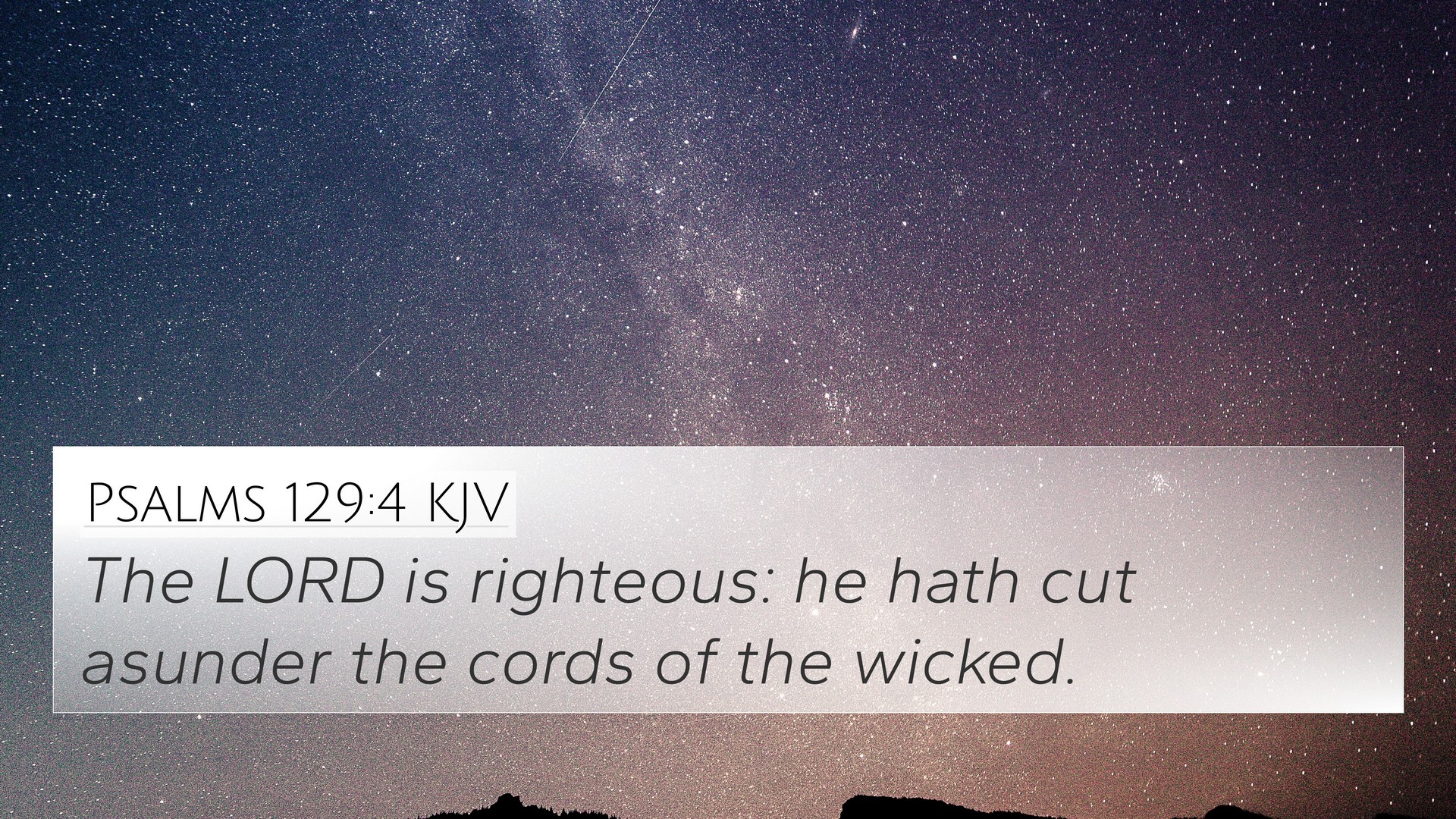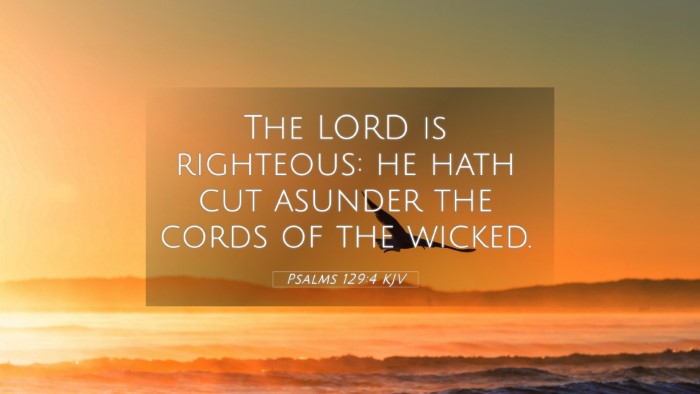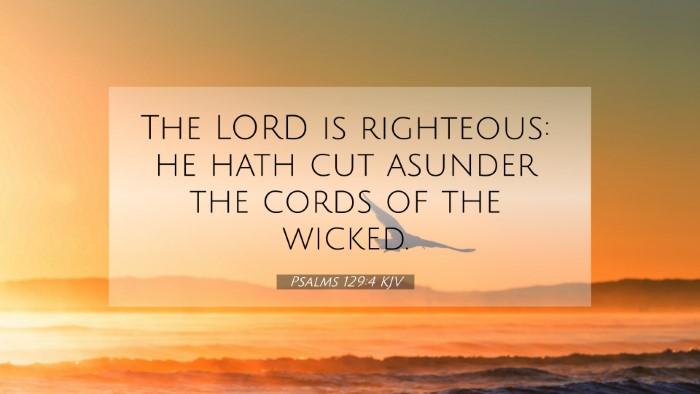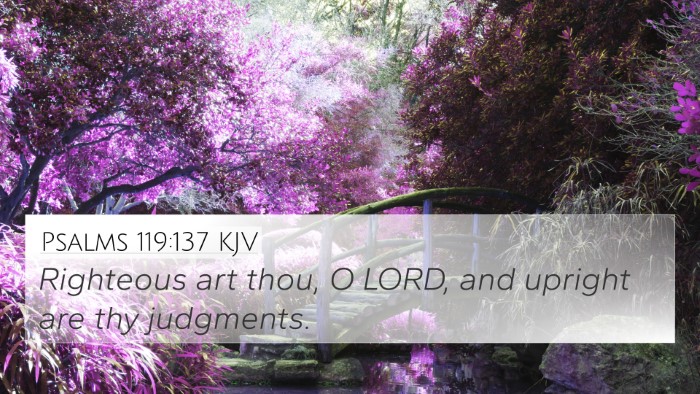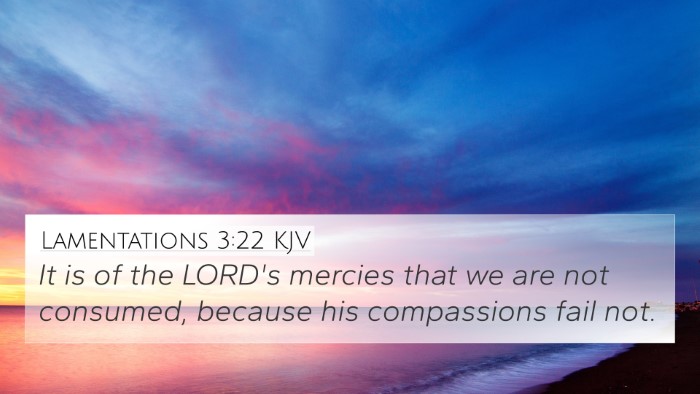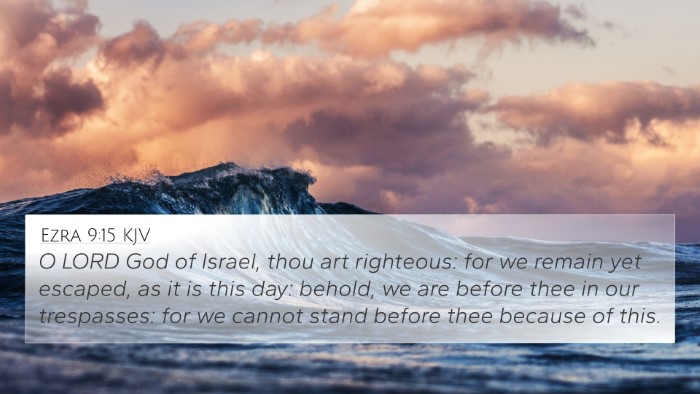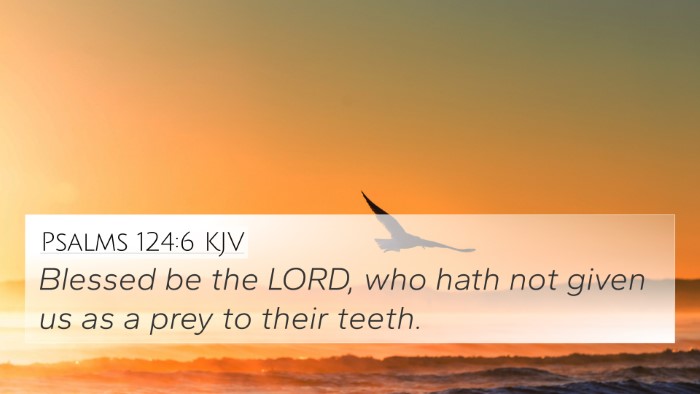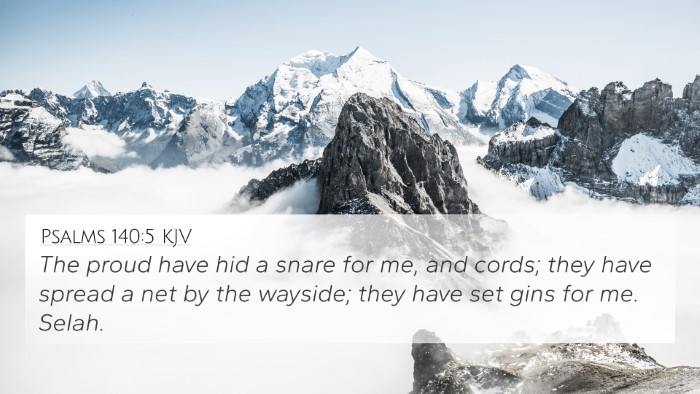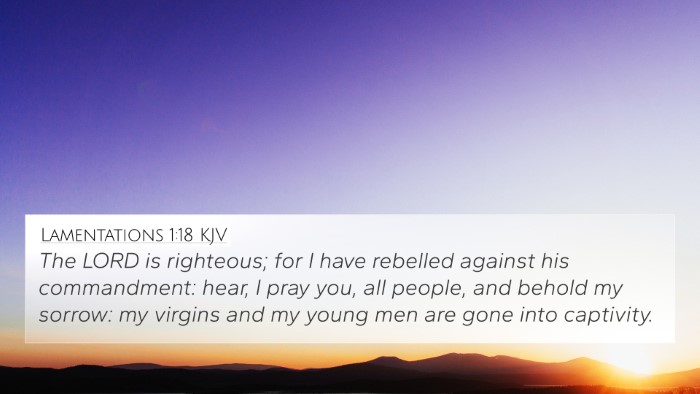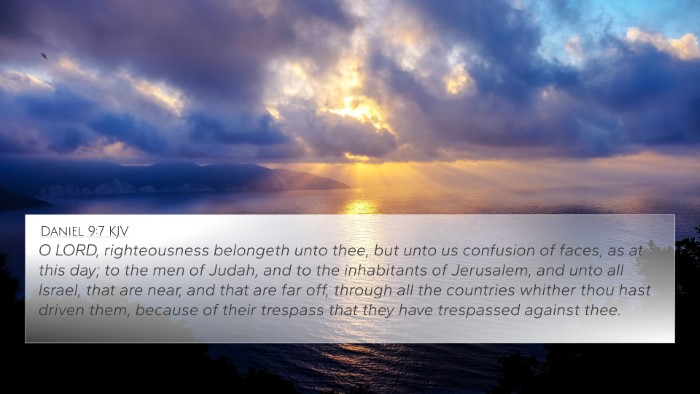Psalms 129:4 - Meaning and Interpretation
Psalms 129:4 states: "The Lord is righteous: he hath cut asunder the cords of the wicked." This verse encapsulates a profound message regarding the justice of God and His triumph over evil. To fully understand its significance, we can draw from various public domain commentaries including those by Matthew Henry, Albert Barnes, and Adam Clarke.
Commentary Insights
Matthew Henry's Commentary
Matthew Henry emphasizes that the assurance of God's righteousness is foundational to the believer's trust. He explains that the phrase "cut asunder the cords of the wicked" symbolizes God's definitive action against oppression. Cords represent both bondage and the lacing of wickedness, and God's righteousness liberates the oppressed from such ties.
Albert Barnes' Notes
Albert Barnes highlights the certainty of divine justice portrayed in this verse. He notes that the metaphor of cutting cords signifies the breaking of strength that the wicked hold over the righteous. His commentary stresses that the believers are assured of God's vindication and that He will sever the influence and power of the unjust.
Adam Clarke's Commentary
Adam Clarke provides an insightful theological perspective, suggesting that the verse reflects God's active role in delivering His people from harm. His focus on God's righteousness indicates that the divine nature is inherently opposed to evil. Clarke argues that recognizing God's righteous actions provides comfort and hope for those who seek justice.
Thematic Bible Verse Connections
This verse relates to several themes within scripture, particularly concerning God's justice and intervention.
- Psalm 73:18-20: Explores the ultimate fate of the wicked compared to the righteous.
- Isaiah 54:17: Emphasizes that no weapon formed against God's people will prosper.
- Romans 12:19: God calls for vengeance, indicating His righteous judgment over wrongdoing.
- 2 Thessalonians 1:6: God repays affliction to those who afflict others, aligning with the theme of divine justice.
- Micah 7:9: Emphasizes the theme of bearing one's indignation, yet trusts in God's salvation.
- Lamentations 3:34-36: Speaks of God’s righteousness in evaluating justice, supporting the theme found in Psalms 129:4.
- Proverbs 11:21: Illustrates that the wicked will not escape judgment, affirming the righteous stance of God.
- Revelation 21:8: Offers a prophetic insight into the final judgment against the wicked.
- Hebrews 10:30: Quotes the Lord's vengeance, affirming His righteousness against those who oppose Him.
- Matthew 12:30: Points out the division between good and evil, reinforcing the overarching theme of divine justice.
Cross-Referencing Biblical Texts
To understand Psalms 129:4 within the broader biblical narrative, we can use tools for Bible cross-referencing. This verse resonates across many texts that highlight the connection between divine justice and the fate of the wicked.
- Tools for Bible Cross-Referencing: A Bible concordance or cross-reference guide can help explore these connections.
- Popular Methods: Utilizing thematic Bible verse connections can provide insights into how scriptures relate to one another.
- Comprehensive Resources: Engage with Bible reference resources for an in-depth analysis of inter-Biblical dialogue.
Understanding through Comparative Analysis
When engaging in a comparative Bible verse analysis, one can appreciate how Psalms 129:4 links to both the Old and New Testaments. By identifying these connections, we enhance our understanding of fundamental biblical themes.
Conclusion
Psalms 129:4 stands as a powerful reminder of God’s righteous judgment. Through cross-referencing Biblical texts and employing various Bible study methods, one can delve deeper into the meaning and implications of this verse. The connections drawn not only between various passages but also through the lens of the righteous nature of God encourage believers to take heart in His justice.
